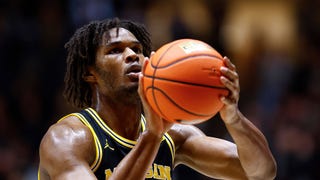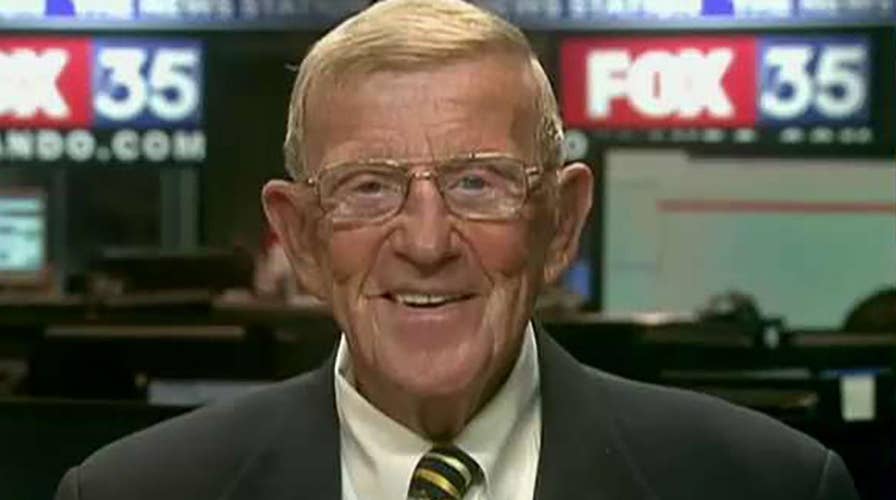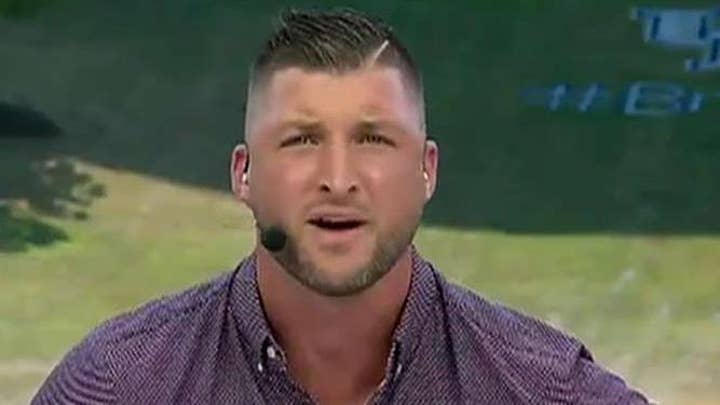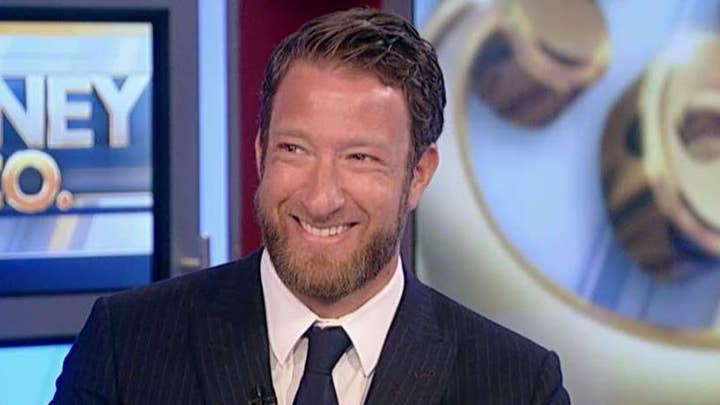Should college athletes be allowed to get paid?
Legendary college football coach Lou Holtz says student athletes should not be paid in addition to their scholarships.
Legendary college football coach Lou Holtz took issue Wednesday with California passing a law allowing college athletes to earn a profit from their names, images and likenesses.
Holtz, in an interview with “Fox & Friends” co-host Brian Kilmeade, said California allowing college athletes to make money puts schools at a bigger advantage when it comes to recruiting. He added that it didn’t bother him that athletes weren’t getting a cut from things like jersey sales.
“You go to school in order to get an education,” Holtz said. “Why do schools even have sports? Because you learn so much from sports. You learn about adversity, you learn about getting along with other people, you’re learning about teamwork and being unselfish. All these qualities will carry over. You ask almost everyone who ever played athletics how much they learned and that’s why we have them. We don’t have them for money."
Holtz said the money is already going toward things college athletes already use like training facilities, workout areas, food and training tables.
When asked whether he agrees it is difficult for college athletes to use the education they’re receiving because there are limits around classroom scheduling, the College Football Hall of Famer said the NCAA also puts limits on practice time and came up with a compromise.
NCAA NEEDS DEFENSIVE PLAN AS 3 MORE STATES LOOK TO FOLLOW CALIFORNIA'S COLLEGE ATHLETES PAY LAW
“Why don’t we say, ‘OK, let’s do a compromise?'” he asked. “The athlete, Justin Fields, you’re a great quarterback. We’re selling your jersey. What we’re going to do, we’re going to take that money and we’re going to give it to student scholarships. We’re going to have four students going on a full scholarship in the name of Justin Fields scholarship, for example.
“I just think we cannot get in this thing of paying somebody.”
California’s law will go into effect in 2023 and does not apply to community college and bans athletes from accepting endorsement deals that conflict with their school's existing contracts.
The NCAA, Pac-12 and SEC have all spoken out against the law.
Membership in the NCAA, the top governing body for college sports, is voluntary. Athletes can get valuable scholarships, but the NCAA has long banned paying athletes to preserve the academic missions of colleges and universities.
The debate over paying college athletes has raged in recent years as some schools rake in millions from their athletic programs -- mostly from football and basketball. Many college basketball athletes have left school early to sign lucrative NBA contracts.
CLICK HERE FOR THE ALL-NEW FOXBUSINESS.COM
The league now requires players to be at least one year removed from high school before entering the draft.
The NCAA has a history of coming down hard on players for receiving compensation or gifts of any kind.











































